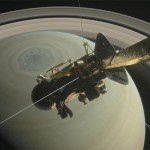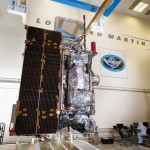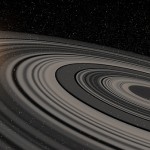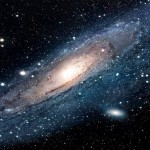U.S. space agency NASA received the final signal from its Cassini spacecraft, which ended a groundbreaking 13-year Saturn mission on Friday with a meteor-like plunge into the planet’s atmosphere, transmitting data until the final moment. Cassini, the first spacecraft to orbit Saturn, ended its mission at 7:55 a.m. EDT (1155 GMT), shortly after it lost contact with … [Read more...]
NASA chooses Lucy and Psyche for asteroid missions
NASA has announced the choice of two new projects of space missions to asteroids in the Discovery program, in order to learn more about the start-up period of our solar system which has an age estimated at 4,6 billions of years, according to the AFP. For the first mission, NASA has announced that they will launch a spacecraft in 2021 which will study the so-called 'Trojans … [Read more...]
A satellite of last generation was launched by NASA to improve the weather forecast
NASA launched on Saturday, the first in a series of four geostationary meteorological satellites of the latest generation, with the capability of observing, in almost real-time, of the lightning storms over the American continent and which allows a considerable improvement of the weather forecast, informs the AFP. The satellite, called GOES-R, will provide images with the … [Read more...]
Mars One presented a project of a Martian costume
The controversial Dutch company Mars One, who wants to send people on Mars in the next ten years, announced the first or concept of a Martian costume that should allow the colonists to do the necessary tasks for their survival under the 'extremely difficult conditions'. The costumes should 'use the maximum of the Martian resources' but still require many hours of work to … [Read more...]
Saturn’s rings – a cemetery of the Moons and of the small planets
The emblematic rings of the gigantic gaseous planet Saturn, as well as those less known of the gigantic Neptune and Uranus are made of pieces of raw material derived from all the planets like Pluto that remained for too long in the vicinity of these planets, being destroyed by the strong gravitational attraction developed by them, according to a new study. Astronomers believe … [Read more...]
Over one billion stars were localized in the Milky Way
We use to say that is impossible to count the stars on the sky. Still, a map of the Milky Way that has an unprecedented precision and that localized 1.142 million of stars starting from the observations of the European Telescope Gaia, was presented by the ESA (The European Space Agency). Anthony Brown, member of the Gaia researching team, stated in a press conference in Madrid … [Read more...]





